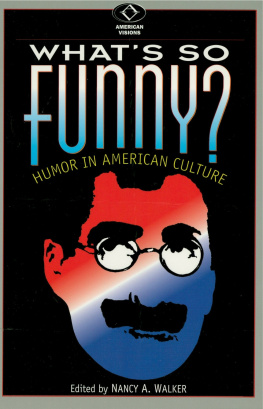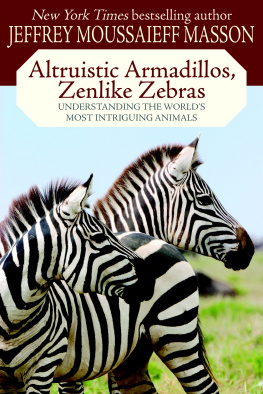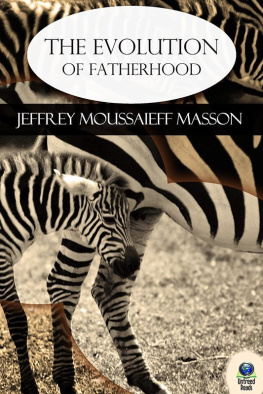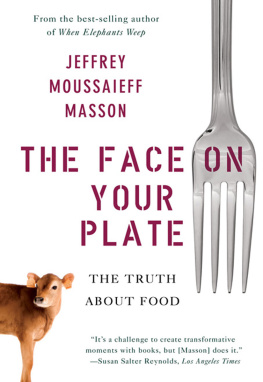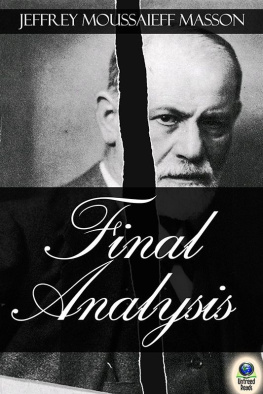Thomas L. Masson - Masterpieces Of American Wit And Humor (Volume 4)
Here you can read online Thomas L. Masson - Masterpieces Of American Wit And Humor (Volume 4) full text of the book (entire story) in english for free. Download pdf and epub, get meaning, cover and reviews about this ebook. year: 1904, publisher: Gutenberg Project, genre: Art. Description of the work, (preface) as well as reviews are available. Best literature library LitArk.com created for fans of good reading and offers a wide selection of genres:
Romance novel
Science fiction
Adventure
Detective
Science
History
Home and family
Prose
Art
Politics
Computer
Non-fiction
Religion
Business
Children
Humor
Choose a favorite category and find really read worthwhile books. Enjoy immersion in the world of imagination, feel the emotions of the characters or learn something new for yourself, make an fascinating discovery.
- Book:Masterpieces Of American Wit And Humor (Volume 4)
- Author:
- Publisher:Gutenberg Project
- Genre:
- Year:1904
- Rating:4 / 5
- Favourites:Add to favourites
- Your mark:
- 80
- 1
- 2
- 3
- 4
- 5
Masterpieces Of American Wit And Humor (Volume 4): summary, description and annotation
We offer to read an annotation, description, summary or preface (depends on what the author of the book "Masterpieces Of American Wit And Humor (Volume 4)" wrote himself). If you haven't found the necessary information about the book — write in the comments, we will try to find it.
Masterpieces Of American Wit And Humor (Volume 4) — read online for free the complete book (whole text) full work
Below is the text of the book, divided by pages. System saving the place of the last page read, allows you to conveniently read the book "Masterpieces Of American Wit And Humor (Volume 4)" online for free, without having to search again every time where you left off. Put a bookmark, and you can go to the page where you finished reading at any time.
Font size:
Interval:
Bookmark:
The Project Gutenberg EBook of Masterpieces Of American Wit And HumorEdited by Thomas L. Masson
Copyright laws are changing all over the world. Be sure to check thecopyright laws for your country before downloading or redistributingthis or any other Project Gutenberg eBook.
This header should be the first thing seen when viewing this ProjectGutenberg file. Please do not remove it. Do not change or edit theheader without written permission.
Please read the "legal small print," and other information about theeBook and Project Gutenberg at the bottom of this file. Included isimportant information about your specific rights and restrictions inhow the file may be used. You can also find out about how to make adonation to Project Gutenberg, and how to get involved.
**Welcome To The World of Free Plain Vanilla Electronic Texts**
**eBooks Readable By Both Humans and By Computers, Since 1971**
*****These eBooks Were Prepared By Thousands of Volunteers!*****
Title: Masterpieces Of American Wit And Humor
Author: Thomas L. Masson (Editor)
Release Date: August, 2004 [EBook #6313][Yes, we are more than one year ahead of schedule][This file was first posted on November 25, 2002]
Edition: 10
Language: English
*** START OF THE PROJECT GUTENBERG EBOOK MASTERPIECES OF AMERICAN WIT ***
Produced by Duncan Harrod, Juliet Sutherland, Charles Franksand the Online Distributed Proofreading Team.
[Illustration: Mark Twain]
Edited by Thomas L. Masson
By
Fitzhugh Ludlow
Harriet Beecher Stowe
Danforth Marble
William Dean Howells
Samuel Minturn Peck
William Cullen Bryant
and others
1903
AGNES REPPLIER
A Plea for Humor
MARIETTA HOLLEY
An Unmarried Female
FITZHUGH LUDLOW
Selections from a Brace of Boys
ROBERT JONES BURDETTE
Rheumatism Movement Cure
OLIVER WENDELL HOLMES
An Aphorism and a Lecture
JOSHUA S. MORRIS
The Harp of a Thousand Strings
SEBA SMITH
My First Visit to Portland
WILLIAM CULLEN BRYANT
The Mosquito
JOHN CARVER
Country Burial-places
DANFORTH MARBLE
The Hoosier and the Salt-pile
ANNE BACHE
The Quilting
FITZ-GREENE HALLECK
A Fragment
Domestic Happiness
CHARLES F. BROWNE ("Artemus Ward")
One of Mr. Ward's Business Letters
On "Forts"
JAMES RUSSELL LOWELL
Without and Within
LOUISA MAY ALCOTT
Street Scenes in Washington
ALBERT BIGELOW PAINE
Mis' Smith
JAMES JEFFREY ROOHE
A Boston Lullaby
CHARLES GRAHAM HALPINE
Irish Astronomy
SAMUEL MINTURN PEOK
Bessie Brown, M. D.
ROBERT C. SANDS
A Monody
CAROLYN WELLS
The Poster Girl
JAMES GARDNER SANDERSON
The Conundrum of the Golf Links
HARRIET BEECHER STOWE
The Minister's Wooing
WILLIAM DEAN HOWELLS
Mrs. Johnson
ANONYMOUS
The Trout, the Cat and the Fox The British Matron
Agnes Repplier
More than half a dozen years have passed since Mr. Andrew Lang,startled for once out of his customary light-heartedness, askedhimself, and his readers, and the ghost of Charles Dickensall threepowerless to answerwhether the dismal seriousness of the presentday was going to last forever; or whether, when the great wave ofearnestness had rippled over our heads, we would pluck up heart to bemerry and, if needs be, foolish once again. Not that mirth and follyare in any degree synonymous, as of old; for the merry fool, tooscarce, alas! even in the times when Jacke of Dover hunted for him inthe highways, has since then grown to be rarer than a phenix. He hascarried his cap and bells and jests and laughter elsewhere, and hasleft us to the mercies of the serious fool, who is by no means soseductive a companion. If the Cocquecigrues are in possession of theland, and if they are tenants exceedingly hard to evict, it isbecause of the encouragement they receive from those to whom weinnocently turn for help: from the poets, novelists and men ofletters whose duty it is to brighten and make glad our days.
"It is obvious," sighs Mr. Birrell dejectedly, "that many peopleappear to like a drab-colored world, hung around with dusky shreds ofphilosophy"; but it is more obvious still that, whether they like itor not, the drapings grow a trifle dingier every year, and that noone seems to have the courage to tack up something gay. What is muchworse, even those bits of wanton color which have rested generationsof weary eyes are being rapidly obscured by somber and intricatescroll-work, warranted to oppress and fatigue. The great masterpiecesof humor, which have kept men young by laughter, are being tried inthe courts of an orthodox morality and found lamentably wanting; orelse, by way of giving them another chance, they are being subjectedto the peine forte et dure of modern analysis, and are revealinghideous and melancholy meanings in the process. I have always believedthat Hudibras owes its chilly treatment at the hands of criticswiththe single and most genial exception of Sainte-Beuveto the absoluteimpossibility of twisting it into something serious. Strive as we may,we cannot put a new construction on those vigorous old jokes, and tobe simply and barefacedly amusing is no longer considered a sufficientraison d'etre. It is the most significant token of our ever-increasing "sense of moral responsibility in literature" that weshould be always trying to graft our own conscientious purposes uponthose authors who, happily for themselves, lived and died beforevirtue, colliding desperately with cakes and ale, had imposed suchdepressing obligations.
"'Don Quixote,'" says Mr. Shorthouse with unctuous gravity, "willcome in time to be recognized as one of the saddest books everwritten"; and, if the critics keep on expounding it much longer, Itruly fear it will. It may be urged that Cervantes himself was lowenough to think it exceedingly funny; but then one advantage of ournew and keener insight into literature is to prove to us howindifferently great authors understood their own masterpieces.Shakespeare, we are told, knew comparatively little about "Hamlet,"and he is to be congratulated on his limitations. Defoe would hardlyrecognize "Robinson Crusoe" as "a picture of civilization," havinginnocently supposed it to be quite the reverse; and he would be asamazed as we are to learn from Mr. Frederic Harrison that his bookcontains "more psychology, more political economy, and moreanthropology than are to be found in many elaborate treatises onthese especial subjects"blighting words which I would not evenventure to quote if I thought that any boy would chance to read themand so have one of the pleasures of his young life destroyed. As for"Don Quixote," which its author persisted in regarding with suchmisplaced levity, it has passed through many bewilderingvicissitudes. It has figured bravely as a satire on the Duke ofLerma, on Charles V., on Philip II., on Ignatius Loyola-Cervantes wasthe most devout of Catholicsand on the Inquisition, which,fortunately, did not think so. In fact, there is little or nothingwhich it has not meant in its time; and now, having attained thatdeep spiritual inwardness which we have been recently told is lackingin poor Goldsmith, we are requested by Mr. Shorthouse to refrain fromall brutal laughter, but, with a shadowy smile and a profoundseriousness, to attune ourselves to the proper state of receptivity.Old-fashioned, coarse-minded people may perhaps ask, "But if we arenot to laugh at 'Don Quixote,' at whom are we, please, to laugh?"aquestion which I, for one, would hardly dare to answer. Only, after reading the following curious sentence, extracted from a latelypublished volume of criticism, I confess to finding myself in a stateof mental perplexity utterly alien to mirth. "How much happier," itsauthor sternly reminds us, "was poor Don Quixote in his energeticcareer, in his earnest redress of wrong, and in his ultimate triumphover self, than he could have been in the gnawing reproach andspiritual stigma which a yielding to weakness never failinglyentails!" Beyond this point it would be hard to go. Were these thingsreally spoken of the "ingenious gentleman" of La Mancha or of JohnHoward or George Peabody or perhaps Elizabeth Fryor is there nolonger such a thing as recognized absurdity In the world?
Next pageFont size:
Interval:
Bookmark:
Similar books «Masterpieces Of American Wit And Humor (Volume 4)»
Look at similar books to Masterpieces Of American Wit And Humor (Volume 4). We have selected literature similar in name and meaning in the hope of providing readers with more options to find new, interesting, not yet read works.
Discussion, reviews of the book Masterpieces Of American Wit And Humor (Volume 4) and just readers' own opinions. Leave your comments, write what you think about the work, its meaning or the main characters. Specify what exactly you liked and what you didn't like, and why you think so.


